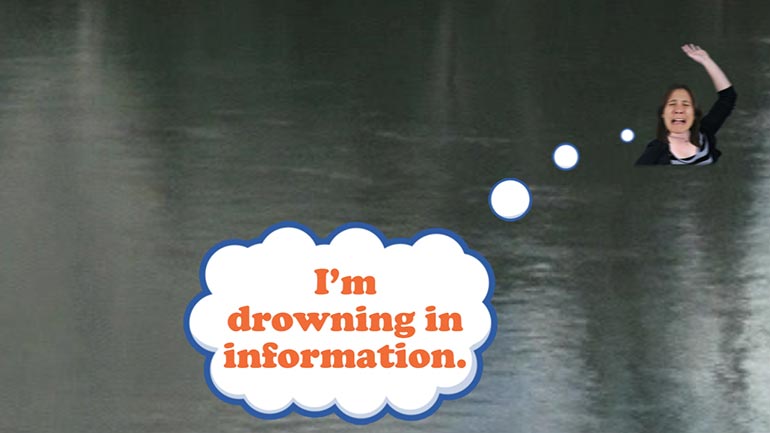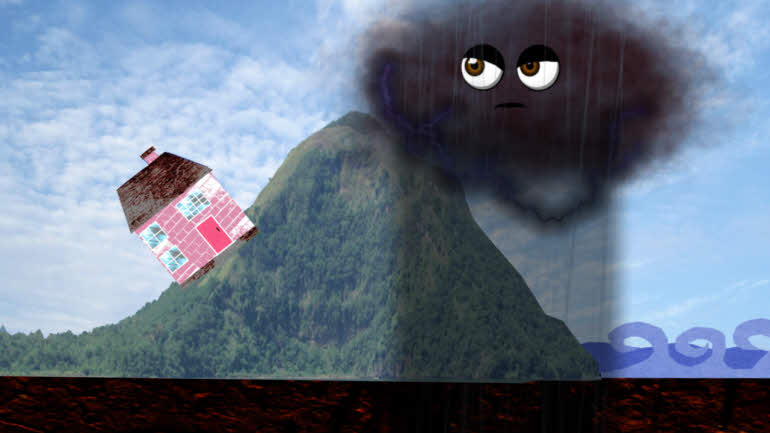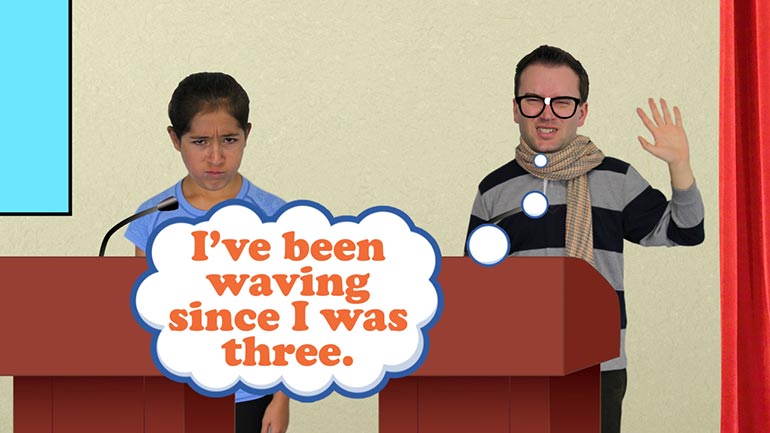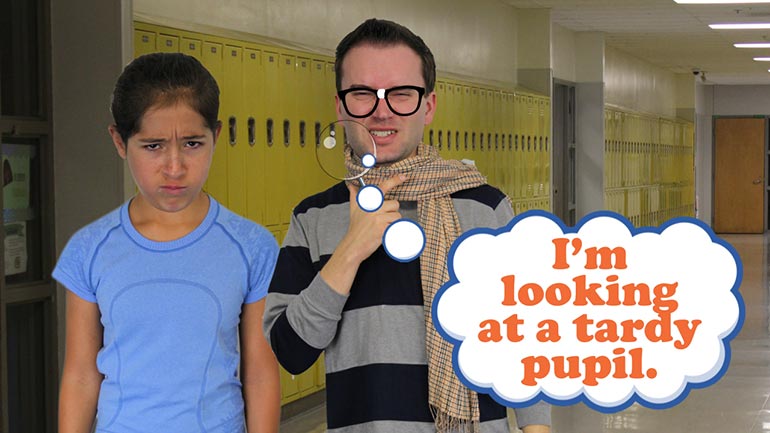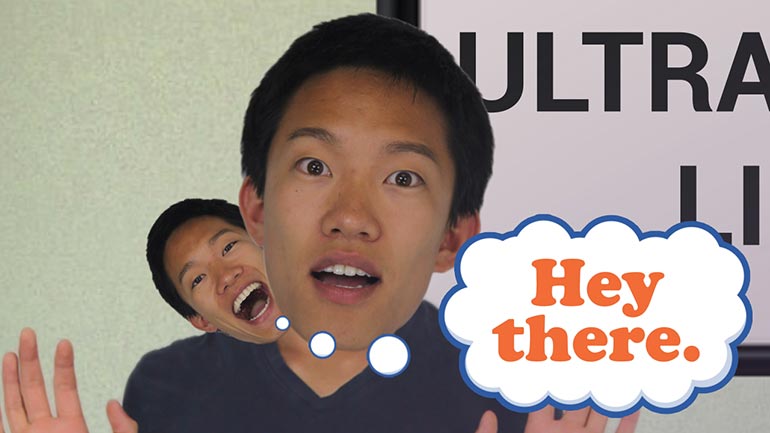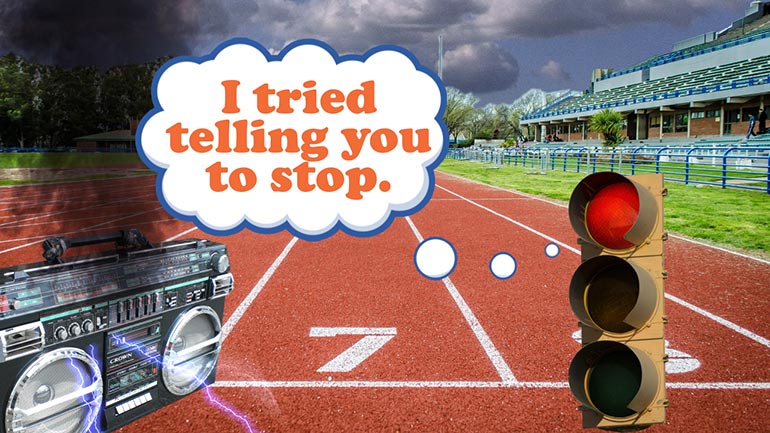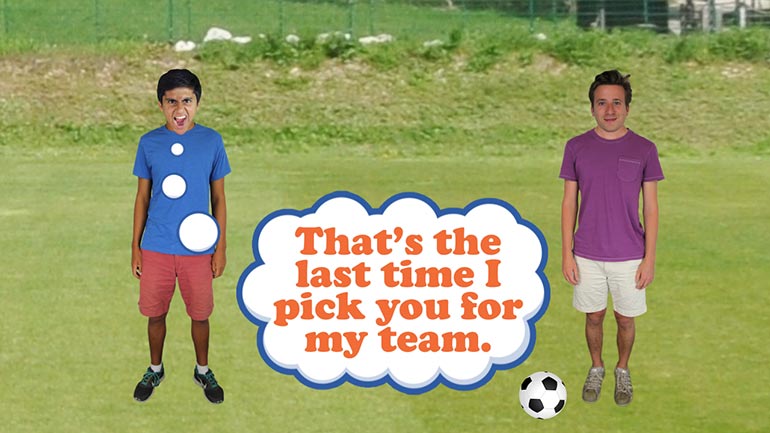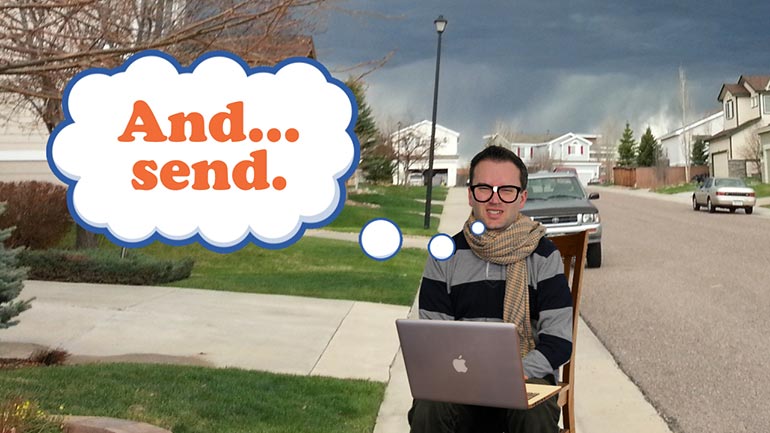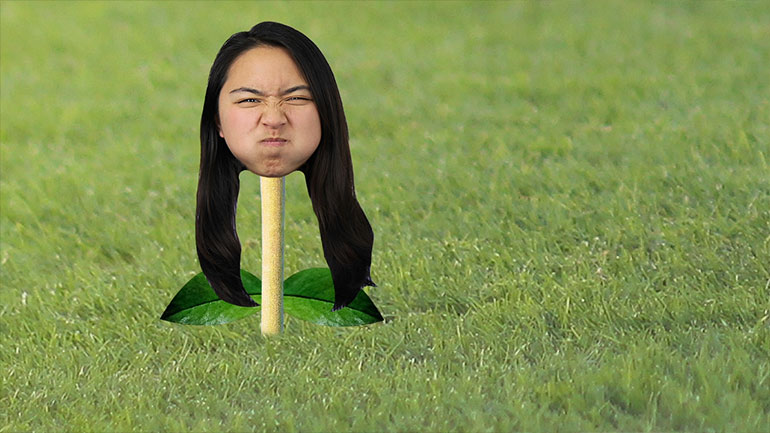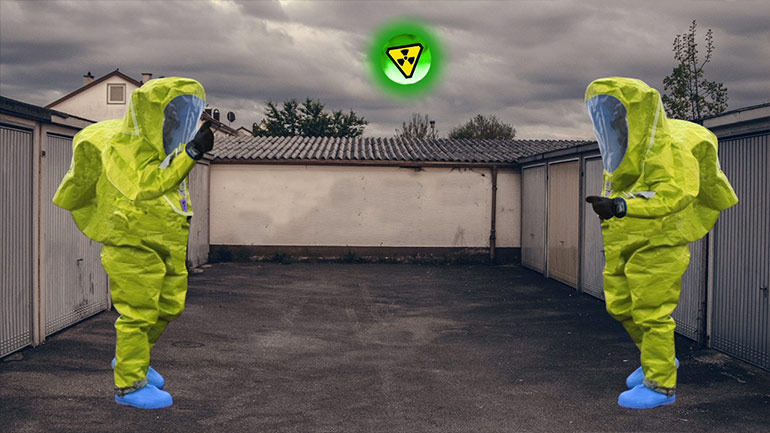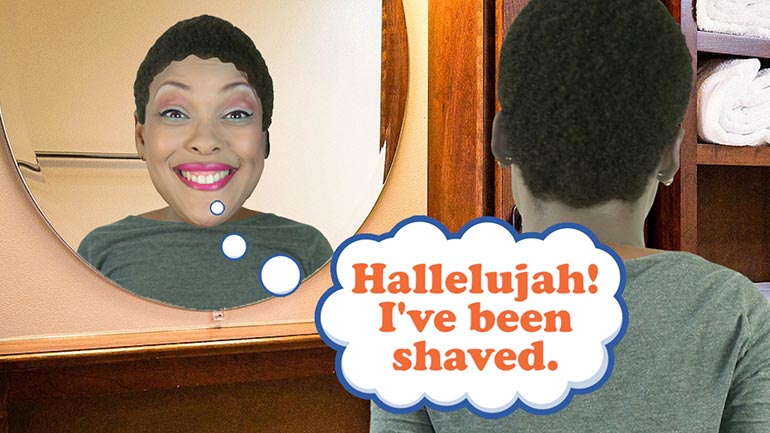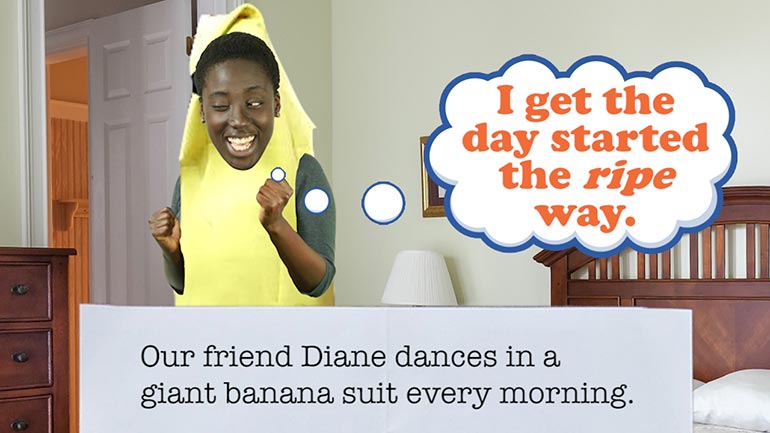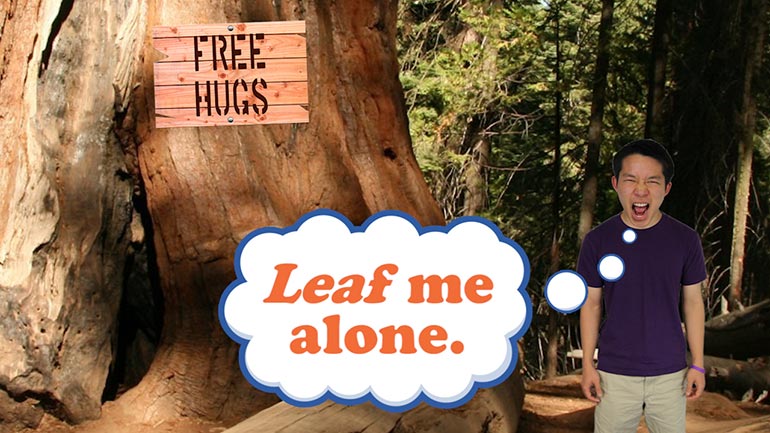ShmoopTube
Where Monty Python meets your 10th grade teacher.
Search Thousands of Shmoop Videos
Science Videos 21 videos
Apologies in advance if you came here really excited about a bicycle you can ride on water. We get that a lot. This video is really about the cycle...
Today we've got some geography. But that's not all, there are tons of extra features included free of charge. We've got rivers, lakes, deserts, mou...
There are tons of different types of maps. We practically need a map map to remember all of them. But don't worry, we've squeezed a few of the impo...
Science 4: UV light 11 Views
Share It!
Description:
Today we're going to teach about an invisible form of light that's like... totally there. We're not trying to trick you or anything. You can't see air, can you? Well, UV light is just like that, except you can't breathe it.
Transcript
- 00:03
[Dino and Coop singing]
- 00:13
We've been bumping up against UV radiation quite a lot in this unit. [Man knocks a lamp off a table]
- 00:17
Which…sounds pretty dangerous, actually…
- 00:18
Well, as long as no one grows a second head during the course of this video, we should [A second head appears out from the mans neck]
- 00:22
be okay.
Full Transcript
- 00:23
Anyway!
- 00:24
UV radiation, also known as UV light, is a form of electromagnetic radiation with a frequency [Coop pointing at a blackboard]
- 00:28
that's slightly higher than good ol' visible light.
- 00:31
So maybe it's time we turn the spotlight on UV radiation. [Crowd cheering]
- 00:35
…Well…hypothetically.
- 00:36
It's invisible, so a spotlight won't help us see it or anything, but…you get the idea. [Spotlight searching around an empty stage]
- 00:41
UV radiation is probably most famous for its association with the sun.
- 00:45
Along with lots of other kinds of radiation, the sun beams UV radiation at our planet, [Different types of radiation being emitted from the Sun]
- 00:49
which can be both a blessing and a curse. [UV rays hitting the Earth]
- 00:52
It's a blessing if you like getting a tan.
- 00:54
The UV rays darken the melanin in human skin, which gives the body protection. [UV rays hitting an arm]
- 00:57
But it's a curse if you try to tan for too long.
- 01:00
Exposure to too many UV rays for too long means you're in for a nasty sunburn, and that's
- 01:05
never a good look.
- 01:06
No matter how much red might be "your color." [Guy in a Santa costume on a beach]
- 01:08
UV light comes from more places than just the sun, though.
- 01:12
If you've ever played laser tag, you've probably been in contact with black lights…y'know,
- 01:15
those weird lights that make whites really bright and give your teeth a spooky glow.
- 01:19
Yup, black lights emit UV light, too. [Kid smiles and his teeth are glowing]
- 01:22
And even though UV light is beyond the range of human sight, that doesn't mean it's invisible [Dino pointing at a blackboard]
- 01:25
to everyone.
- 01:26
Insects, for instance, have no problem seeing UV light. [Insects flying around a UV light bulb]
- 01:30
And sure, it might be kind of embarrassing knowing that insects can do something that [Fly is swatted]
- 01:33
you can't, but look on the bright side!
- 01:35
Humans are still the only species capable of dancing on rollerblades. [Girl dancing while rollerblading]
- 01:39
For now, at least…clever insects… [Ant wearing rollerblades]
- 01:41
Insect's ability to see UV light isn't just a nifty party trick.
- 01:44
A lot of flowers have evolved nectar guides, which are patterns that help guide pollinators [Coop pointing at a blackboard]
- 01:49
to their sweet, sweet rewards.
- 01:50
Some of these patterns are visible to humans…
- 01:52
…but some of them are completely invisible to us unless we're using a black light. [A black light reveals patterns on a flower's petals]
- 01:57
However, those UV-fluent bugs can follow these flowers' signals without any trouble, or black [Bee flying to a flower]
- 02:01
lights.
- 02:02
Which is good, because it would take a lot hours at the gym for an insect to lug around [Group of bees carrying a black light bulb]
- 02:06
a black light.
- 02:07
Unfortunately for insects, their ability to see UV light can be used against them. [They drop the light bulb]
- 02:11
The bulbs inside bug zappers are special UV light bulbs. [Someone swats an insect on their arm]
- 02:14
The light attracts the bugs closer and closer… [Insect flying into a bug zapper]
- 02:17
…until ZAP!
- 02:18
No more bug.
- 02:19
…Yeah, we guess we're not actually that jealous of them anymore. [Guy rollerblading past the smashed light bulb]
- 02:21
We'll take pride in our sweet rollerdance moves. [Guy rollerblades into a group of insects and falls over]
Related Videos
Sticks and stones, right? Well...only sometimes. It's a good idea to make sure your words aren't going to hurt others. Let's look at some ways to d...
Learn to debate like a champ. It's way better than debating like a chimp. That just takes mudslinging to a whole new level.
Today we'll learn about biographies and autobiographies. And no, the second one has nothing to do with the lives of cars.
In this lesson we'll subject you to some verbs and predicates. Each one is a necessary part of a complete breakfas—er...sentence.
Choosing words carefully is important. You may end up vexing the assemblage of citizens you're conversing with...or you might even just plain bore...

